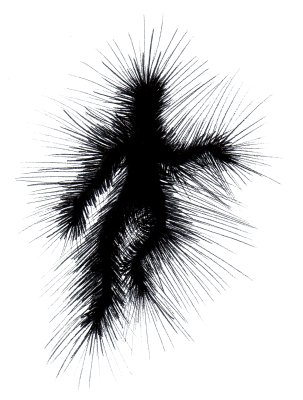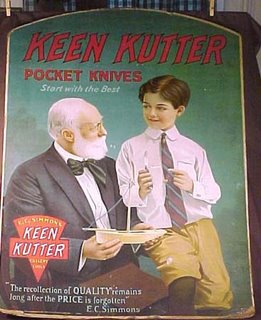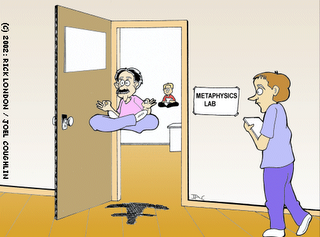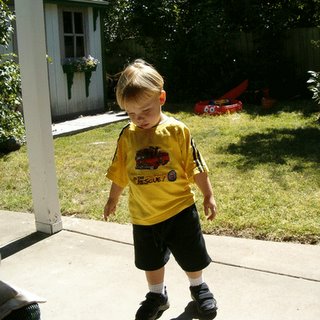
How strange his life had been, he thought. He had wandered along strange paths. As a boy I was occupied with the gods and sacrifices, as a youth with asceticism, with thinking, and meditation. I was in search of Brahman and revered the eternal Atman. As a young man I was attracted to expiation. I lived in the woods, suffered heat and cold. I learned to fast, I learned to conquer my body. I then discovered with wonder the teachings of the great Buddha. I felt knowledge and the unity of the world circulate in me like my own blood, but I also felt compelled to leave the Buddha and the great knowledge. I went and learned the pleasures of love from Kamala and business from Kamaswami. I hoarded money, I squandered money, I acquired a taste for rich food, I learned to stimulate my senses.
Hermann Hesse, Siddhartha.I was also having trouble with the so-called parietal rules at Harvard which said that a woman must leave a student's room by 10 P.M. Every second that I was not studying, I spent at Wellesley, meeting women. This was a paradox that was becoming more and more pronounced in my character. While I still considered myself a spiritual person, I was becoming increasingly obsessed—an even stronger word would not be out of place—with sex. I saw it everywhere. I wanted it. I thought about it all the time. No woman seemed safe from my predations. I look back at it with horror. I had absolutely no understanding of what I was doing.
J. Moussaieff Masson, My Father's Guru.
—I was afraid of myself, I was fleeing from myself.
Hermann Hesse, Siddhartha.
One evening I was invited to meet an older (perhaps forty-five) professor of Indian philosophy who was visiting from India. She had something of a following in India and was even considered a kind of guru. Somehow the discussion turned to spiritual matters. This woman said she had never felt sexual desire in her life because her mind was filled with spiritual thoughts. There was simply no room. As the guests were leaving her apartment, she asked me to stay a little bit, as there was something she wanted to tell me. When we were alone she said: "You looked as though you did not believe what I was saying. Is that true?"
"Well, actually I don't, no," I replied.
"You don't believe I am free of sexual desire?"
"No."
"I will prove it to you. Touch my breasts."
I did as I was told.
"See, I feel nothing. Now touch my thighs."
I did as I was told.
"Again, nothing. Even if you enter me with your penis, I will feel nothing. Do you believe me?"
"No."
"Try."
I did.
"See, I feel nothing. The whole time this is going on I am thinking only about the higher self, the atman."
J. Moussaieff Masson, My Father's Guru.
To whom else should one offer sacrifices, to whom else should one pay honor, but to Him, Atman, the Only One? And where was Atman to be found, where did He dwell, where did His eternal heart beat, if not within the Self, in the innermost, in the eternal which each person carried within him? But where was this Self, this innermost?
Hermann Hesse, Siddhartha.
Where was it? Where was it?
Robert Ludlum, The Parsifal Mosaic.
It is not surprising that the very word for asceticism,
tapas, is . . .
J. Moussaieff Masson, The Psychology of the Ascetic.
. . . insidiously related, tied to, and involved with . . .
Friedrich Nietzsche, Beyond Good and Evil.
. . . a word commonly associated with . . .
J. Moussaieff Masson, The Psychology of the Ascetic.
. . . seemingly opposite things—
Friedrich Nietzsche, Beyond Good and Evil.
. . . with virility, with sexual prowess, especially with increased potency (evidence for this is found not only in the Sanskrit texts, but in the observations of many travelers in India). The myths of Siva show such connections in detail. It is not surprising that the concern with incontinence would lead to fantasies about the powers inherent in semen; we can see this attested to in the ancient stories containing oral pregnancy fantasies (a ubiquitous theme in the Mahabharata: e.g., Kasyapa, Rsyasrnga's father, lost his semen at the sight of Urvasi, and it was swallowed by a female antelope who subsequently gave birth to Rsyasrnga—hence his name "Antelope-Horned").
These sexual fantasies of immense prowess are of course only the other side of the coin from constant fears of sexual depletion. Such concerns, universal and timeless, are particularly well documented in the case of the Indian villager.
J. Moussaieff Masson, The Psychology of the Ascetic.
‘The Victors’
The Diary of Richard Wagner: The Brown Book — 1865-1882.
Have you heard about it?
Hermann Hesse, Demian.
The sketch of . . .
Robert W. Gutman, Richard Wagner: The Man, His Mind, and His Music.
. . . ‘The Victors’ . . .
The Diary of Richard Wagner: The Brown Book — 1865-1882.
. . . Wagner's projected music drama on a Buddhist theme . . .
Cosima Wagner's Diaries (editors' note).
. . . pictures Ananda, a disciple of Buddha, hospitably given water by a . . .
Robert W. Gutman, Richard Wagner: The Man, His Mind, and His Music.
. . . maiden Prakriti.
Richard Wagner, Sketch of ‘The Victors’.
The Buddha warns Ananda not to speak with women; if he must speak to one to keep his eyes on the ground; and if he must look, "Then beware Ananda, beware."
J. Moussaieff Masson, The Psychology of the Ascetic.
Prakriti . . .
Richard Wagner, Sketch of ‘The Victors’.
. . . falls deeply in love and seeks out . . .
Robert W. Gutman, Richard Wagner: The Man, His Mind, and His Music.
. . . Gotama, The Buddha, . . .
Hermann Hesse, Siddhartha.
. . . beneath a tree at the city gate to ask permission for union with Ananda. The Buddha reveals her identity in a former incarnation as an overproud girl who scorned the love of an unfortunate, an arrogant act she must now expiate by experiencing the torture of unsatisfied passion. Only by sharing Ananda's vow of chastity may she stay at his side. Grasping his condition of salvation, she joyfully agrees, and Ananda receives as his sister one who has risen to his own level of self-denial.
Robert W. Gutman, Richard Wagner: The Man, His Mind, and His Music.
So what is it that . . .
J. Moussaieff Masson, The Psychology of the Ascetic.
. . . Gotama, The Buddha, . . .
Hermann Hesse, Siddhartha.
. . . says? He says:
J. Moussaieff Masson, The Psychology of the Ascetic.
One must find the source within one’s own Self, one must possess it.
Everything else was seeking—a detour, error.
Hermann Hesse, Siddhartha.
In the figure of the maiden, who was one day to become Kundry in
Parsifal, Wagner sought finally to resolve his concern with . . .
Robert W. Gutman, Richard Wagner: The Man, His Mind, and His Music.
. . . the realm of unbridled sexual fantasy.
J. Moussaieff Masson, The Psychology of the Ascetic.
These were . . .
Hermann Hesse, Siddhartha.
. . . Wagner’s . . .
Anthony Storr, Feet of Clay—Saints, Sinners, and Madmen: A Study of Gurus.
. . . thoughts; this was his thirst, his sorrow.
Hermann Hesse, Siddhartha.
Wagner saw resignation as the only solution to his infatuation for . . .
Robert W. Gutman, Richard Wagner: The Man, His Mind, and His Music.
. . . Mathilde Wesendonk . . .
K.R. Eissler, Talent and Genius.
. . . the object of his ill-starred adoration.
Martin Gregor-Dellin, Richard Wagner: His Life, His Work, His Century.
I have no inclination any more, no will!—
Would there were an end to it, an end!—
The Diary of Richard Wagner: The Brown Book — 1865-1882.
He wished passionately for oblivion, to be at rest, to be dead.
Hermann Hesse, Siddhartha.
"The Victors" was a product of this frame of mind.
Robert W. Gutman, Richard Wagner: The Man, His Mind, and His Music.
When the Self was conquered and dead, when all passions and desire were silent, then the last must awaken, the innermost of Being that is no longer Self—the great secret.
Hermann Hesse, Siddhartha.
The ascetic . . .
J. Moussaieff Masson, The Psychology of the Ascetic.
. . .theme of "The Victors" sustained Wagner and Mathilde in a state of exaltation after . . .
Robert W. Gutman, Richard Wagner: The Man, His Mind, and His Music.
. . . Wagner’s first wife Minna . . .
Joseph Horowitz, Program Notes for the Ring Festival.
. . . had put an end to what was evidently the less abstemious phase of their affair.
Robert W. Gutman, Richard Wagner: The Man, His Mind, and His Music.
Wagner . . .
Anthony Storr, Feet of Clay—Saints, Sinners, and Madmen: A Study of Gurus.
. . . wrote that at this particular epoch of his life he had . . .
Robert W. Gutman, Richard Wagner: The Man, His Mind, and His Music.
. . . one single goal—to become empty, to become empty of thirst, desire, dreams, pleasure and sorrow—to let the Self die. No longer to be Self, to experience the peace of an emptied heart, to experience pure thought—that was his goal.
Hermann Hesse, Siddhartha.
It had been more than a little characteristic of the conflict between asceticism and world-devouring hunger that made up the drama of his nature.
Thomas Mann, Doctor Faustus.
I believe that the concern voiced ubiquitously by the ascetic in Indian literature—
J. Moussaieff Masson, The Psychology of the Ascetic.
‘seeing the world and the human self in one great all including vision, . . . ’
Jon Westlesen, Body Awareness as a Gateway to Eternity: A Note on the Mysticism of Spinoza and Its Affinity to Buddhist Meditation.
. . . in sum, . . .
Thomas Hardy, The Woodlanders.
. . . the search for mystical experiences; as if only the ecstatic stillness of trance-states could fill the void of a happiness never experienced . . .
J. Moussaieff Masson and Terri C. Masson, Buried Memories on the Acropolis: Freud’s Response to Mysticism and Anti-Semitism.
—is an oblique reference to . . .
J. Moussaieff Masson, The Psychology of the Ascetic.
. . . a sad past. The apparent reliving of a lost past in terms of grasping at the illusion of ecstasy can only represent a falsification of memory for the purpose of defence. And the dry, brittle memories of an emotionally arid childhood are as fearsome as those of more openly violent abuse.
J. Moussaieff Masson and Terri C. Masson, Buried Memories on the Acropolis: Freud’s Response to Mysticism and Anti-Semitism.
Gradually it has become clear to me . . .
Friedrich Nietzsche, Beyond Good and Evil.
. . . that all ascetics must have suffered from harsh and unloving parents in their childhood . . . . I should add, however, that most analysts would disagree, and would qualify this by saying that often the harsh treatment was only imagined—often as retaliation for imagined evil in the little child himself, for his own destructive fantasies vis-a-vis his parents and siblings.
J. Moussaieff Masson, The Psychology of the Ascetic.
It seems to me that . . .
Friedrich Nietzsche, Beyond Good and Evil.
. . . all ascetics suffered massive traumas in their childhood in one of three ways: they were sexually seduced, or they were the object of overt or covert aggression, or they lost those closest to them early in their lives. Their lives were pervaded with sadness; their rituals, their obsessive gestures of every kind, are an attempt to recapture the lost childhood they never had. It is not surprising to find that all addicts have suffered such loss.
J. Moussaieff Masson, The Psychology of the Ascetic.
At a later date I would gradually be persuaded that devastating loss in childhood figured as a probable genesis of my own disorder . . .
William Styron, Darkness Visible: A Memoir of Madness.
Psychoanalytic studies of addiction have enabled us to see "addictive" features in many areas seemingly unrelated to pure drug or alcohol addiction. Compulsive sexuality can serve as an addiction, as can the practices of asceticism.
J. Moussaieff Masson, The Psychology of the Ascetic.
 How does the artist create himself? How does the artist transform his common, conventional state to one of artistic awareness. How does the artist train his senses to accept those necessary but forbidden impulses or trivial ideas that exist outside human reason and put them to creative use? Let me give you some advice:
How does the artist create himself? How does the artist transform his common, conventional state to one of artistic awareness. How does the artist train his senses to accept those necessary but forbidden impulses or trivial ideas that exist outside human reason and put them to creative use? Let me give you some advice:











